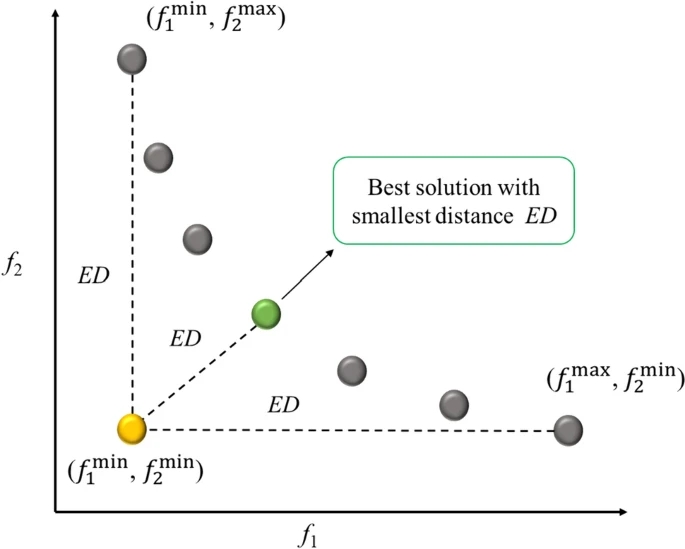Journal of Bionic Engineering (2024) 21:1541–1566 https://doi.org/10.1007/s42235-024-00504-8
An Efcient Multi?objective Approach Based on Golden Jackal Search for Dynamic Economic Emission Dispatch
Keyu Zhong1,2 · Fen Xiao3 · Xieping Gao1,4
1 Key Laboratory of Computing and Stochastic Mathematics of Ministry of Education, Hunan Normal University, Changsha 410081, China
2 School of Mathematics and Statistics, Hunan Normal University, Changsha 410081, China
3 School of Computer Science, Xiangtan University, Xiangtan 411105, China
4 Hunan Provincial Key Laboratory of Intelligent Computing and Language Information Processing, Hunan Normal University, Changsha 410081, China
Abstract
Dynamic Economic Emission Dispatch (DEED) aims to optimize control over fuel cost and pollution emission, two conficting objectives, by scheduling the output power of various units at specifc times. Although many methods wellperformed on the DEED problem, most of them fail to achieve expected results in practice due to a lack of efective trade-of mechanisms between the convergence and diversity of non-dominated optimal dispatching solutions. To address this issue, a new multi-objective solver called Multi-Objective Golden Jackal Optimization (MOGJO) algorithm is proposed to cope with the DEED problem. The proposed algorithm frst stores non-dominated optimal solutions found so far into an archive. Then, it chooses the best dispatching solution from the archive as the leader through a selection mechanism designed based on elite selection strategy and Euclidean distance index method. This mechanism can guide the algorithm to search for better dispatching solutions in the direction of reducing fuel costs and pollutant emissions. Moreover, the basic golden jackal optimization algorithm has the drawback of insufcient search, which hinders its ability to efectively discover more Pareto solutions. To this end, a non-linear control parameter based on the cosine function is introduced to enhance global exploration of the dispatching space, thus improving the efciency of fnding the optimal dispatching solutions. The proposed MOGJO is evaluated on the latest CEC benchmark test functions, and its superiority over the state-of-the-art multi-objective optimizers is highlighted by performance indicators. Also, empirical results on 5-unit, 10-unit, IEEE 30-bus, and 30-unit systems show that the MOGJO can provide competitive compromise scheduling solutions compared to published DEED methods. Finally, in the analysis of the Pareto dominance relationship and the Euclidean distance index, the optimal dispatching solutions provided by MOGJO are the closest to the ideal solutions for minimizing fuel costs and pollution emissions simultaneously, compared to the latest published DEED solutions.
Keywords Dynamic economic emission dispatch · Multi-objective optimization · Golden jackal · Euclidean distance index

Copyright © 2024 International Society of Bionic Engineering All Rights Reserved
吉ICP备11002416号-1









